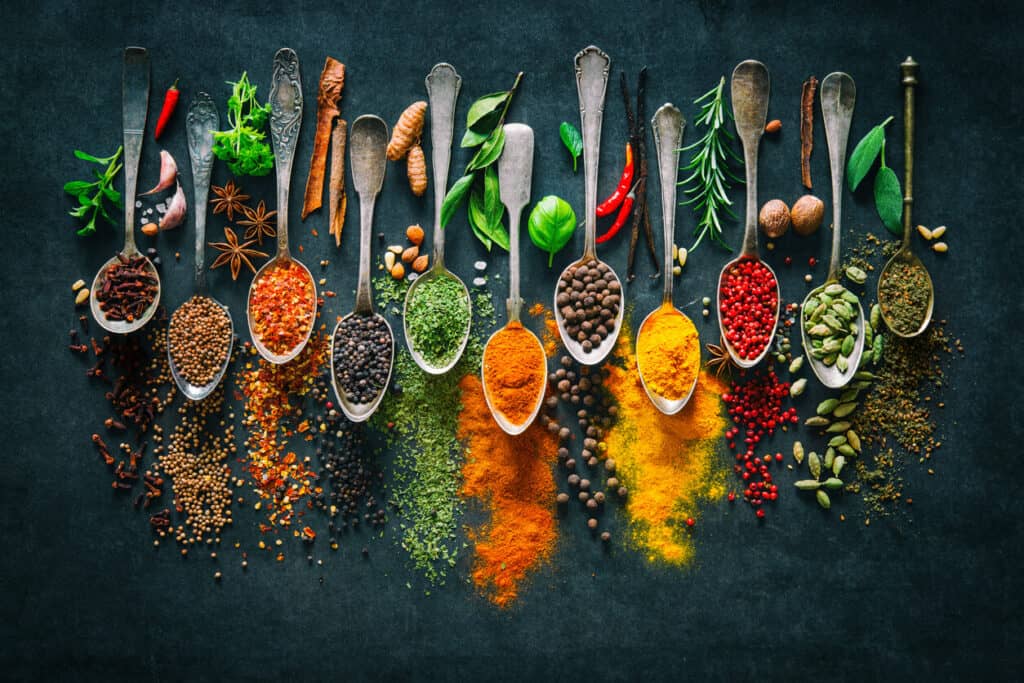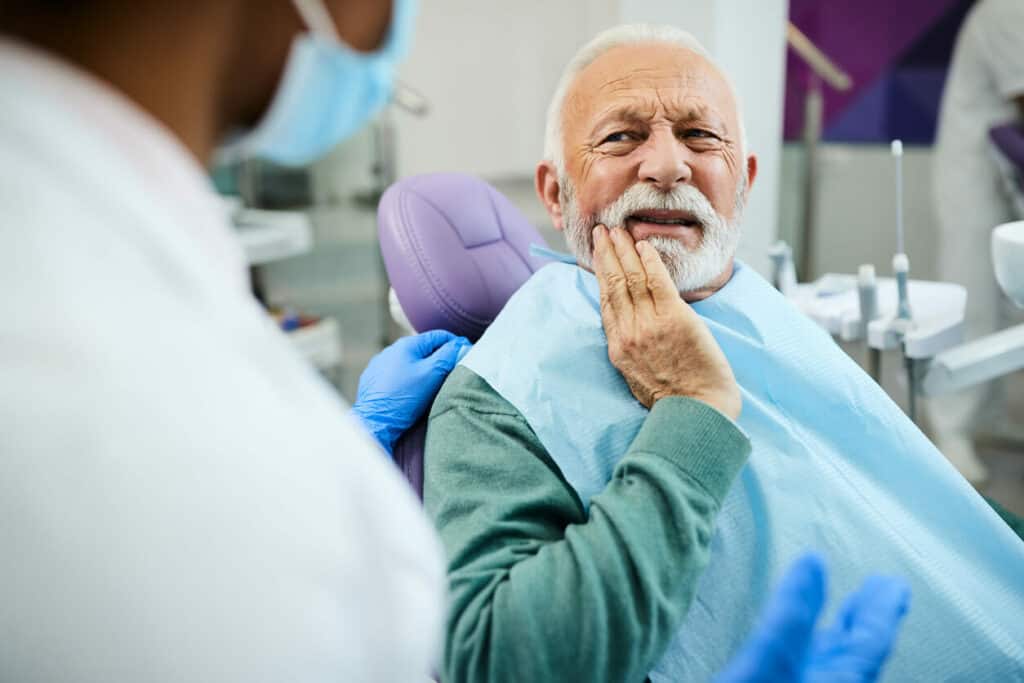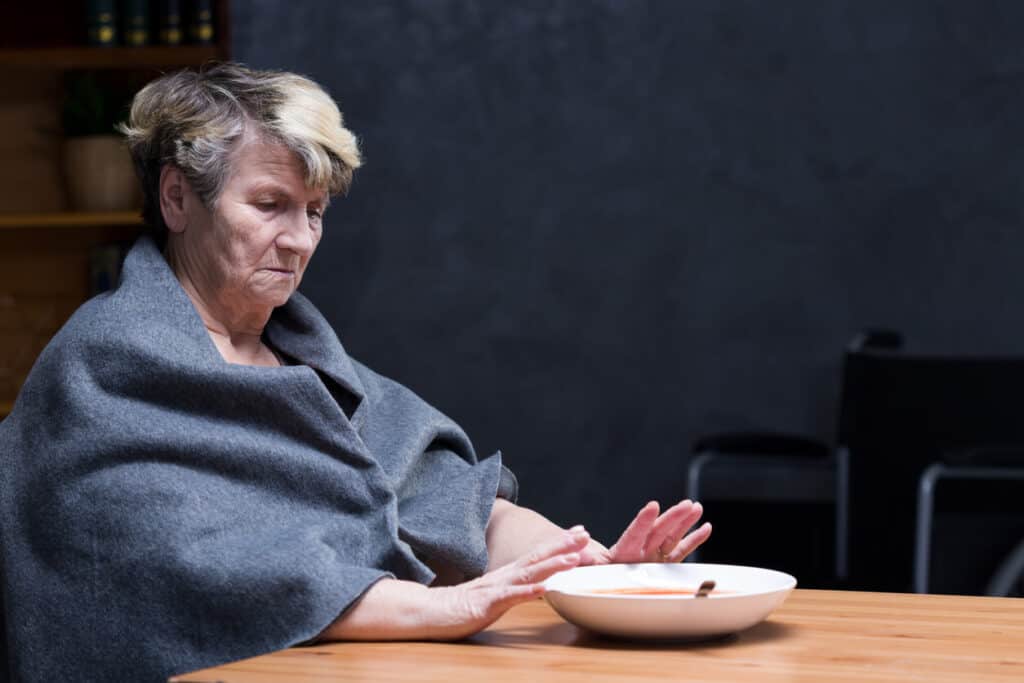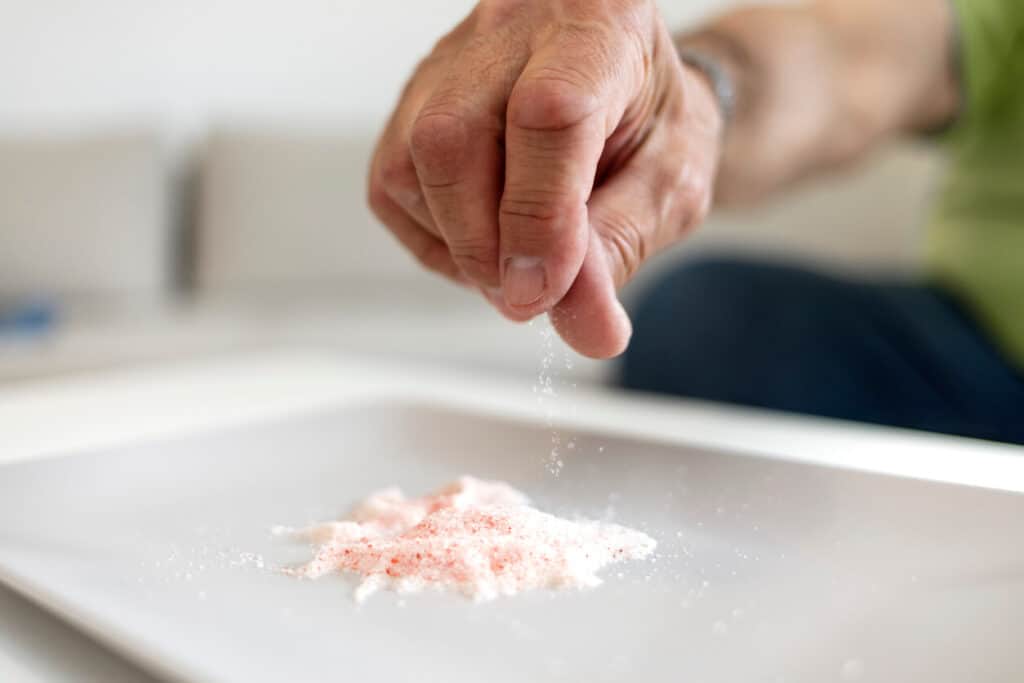
How many children have you heard of that love broccoli? Or cilantro? I personally hated cilantro and coriander until my late 30s. Then all of a sudden, they didn’t bother me anymore. I’m still not a fan of either of these herbs, but I can tolerate them and actually don’t mind if I find them in my salads.
The same can’t be said for my fourteen-year-old son. Not surprisingly, he passionately dislikes broccoli, cilantro, or coriander. Then, when I get older, I will probably start adding hot sauce or sriracha to most dishes, like my grandpa used to do.
Our three generations are empirical proof that human taste does change with age. Actually, the conditioning of our taste buds to withstand extra spicy and hot flavors is another evidence that their sensibility can be altered.
What Is Taste?
We perceive taste with the help of receptor cells called taste buds, found inside the mouth and mainly located on the top surface of our tongue. The chemicals from the food or drinks react with the taste buds, sending signals to the brain.
Babies are born with around 10,000 taste buds, and astonishingly, their sense of taste is developed before birth. While in the uterus, they breathe and swallow the amniotic fluid and, with it, the flavors of the food consumed by the mother. These flavors go from the bloodstream to this amniotic fluid, and the baby can taste it and experience the different flavors. Not only that but in a similar manner, babies develop their sense of smell too.
Are taste and flavor the same?
Aromas and tastes both influence flavor. Therefore, a vanilla-scented cookie can be perceived as sweeter than another one without the vanilla but with the same sugar content. This is because once we experience a scent together with a taste, the two sensations become associated in our memory.
The sense of smell is an inseparable part of our experience with food. A fact that becomes evident when we catch a cold and have a stuffy nose. If our sense of smell is impaired and we can’t smell the orange juice, it has only a sweet-tangy taste. Without the orange aroma, it tastes pretty dull, and indeed we may not be able to recognize what fruit it is made of.

There are five primary taste sensations – sweet, sour, salty, bitter, and umami, or savory. Although, some like to add fat to this list.
There is also a slight difference between flavor and taste, often used interchangeably in day to day conversation. A cube of sugar tastes sweet but has no aroma, while a ripe strawberry is not only sweet but also flavorful, as it has an enticing smell.
Does our taste change as we get older?
The fact that when we are born, we have 10,000 taste buds may be responsible for children’s reluctance to eat their veggies since the greens can be perceived as bitter tasting.
However, by the time we become adults, the number of our taste receptors is reduced to anywhere between 8000 and 2000, with their function and number only diminishing as we age more.
Fortunately, the caregivers working with Amy’s Eden are aware of this fact and always take it into account when preparing meals for the seniors they are assisting.

What Causes The Loss Of Taste?
Taste buds that act as receptors for different flavors can have various sensitivity levels. Some are great at perceiving salty, others – sweet, tangy, or sour tastes, while others are better at detecting bitterness. Despite what some believe, there aren’t zones on the tongue that are designated for perceiving different tastes.
In addition to sending signals to the brain about the different flavors, the taste buds also have the ability to regenerate themselves. Scientists have discovered that they are being renewed approximately every one to two weeks.
Unfortunately, this regenerative ability lessens as we grow older. Receptors that a scorching tea has damaged, for example, may not recover fully and therefore become less sensitive. Other taste buds simply stop regenerating and vanish as we age.
Along with that, some medical conditions and interventions can also affect the sense of taste. These could be:
- Dental procedures, like tooth extractions
- Upper respiratory infections
- Tonsillectomy, the removal of the tonsils
- Ear, nose, and throat surgeries
- Middle ear infections
- Radiation therapy in the neck and head
- Certain medications, especially beta blockers and angiotensin-converting enzyme (ACE) inhibitors, antihistamines (allergy drugs), and antibiotics
- Covid-19 infection
- Cognitive disorders and diseases of the central nervous system like Alzheimer’s, Dementia, Parkinson’s
- High blood pressure
- Advanced Diabetes

Apart from these, some lifestyle choices and circumstances, such as:
- Cigarette smoking
- Poor oral hygiene
- Dental problems
- Exposure to some chemicals and pesticides,
can also cause the dampening of taste in older adults.
What Happens When You Lose Your Sense Of Taste?
The ability to taste what we drink and eat does not disappear overnight and is often accompanied by the demise of the sense of smell. The combination of losing both senses can significantly impact the quality of life of our older loved ones.
The decline typically becomes more evident around 70 years of age, but this can vary a lot. There is evidence that women are better at detecting sweet tastes than men, and at the same time, they are more sensitive to bitter tastes throughout their lives.

Loss of appetite
The sensitivity to taste our food prepares us for digestion and creates a sense of pleasure and fullness during eating. Therefore, the loss of taste in seniors is very often followed by a loss of appetite, which may result in worsening nourishment.
Malnutrition
Malnutrition can lead to impaired regeneration of the taste receptors and, as a result, can contribute to a further loss of taste sensation. In older adults, malnutrition can have other seriously detrimental effects. It can cause dangerous weight loss and compromise the immune system of your beloved elderly.
Consumption of spoiled food or beverages
The taste buds can help us decide not only what and how much we eat but also tell us if a given food is safe to eat. Thus, having a dampened sense of taste may lead to consuming putrefied or poisonous food or chemicals.

Increased intake of salt or sugar
The reduction in taste sensitivity in older adults can provoke them to add more salt or sugar to improve the flavor of their food. Increased consumption of salt and sugar can be a problem for seniors with high blood pressure or diabetes conditions.
Can lead to depression
Losing the sense of taste and smell with age can, in some cases, lead to depression as well. A study examining the connection between depression and the loss of taste has discovered just that and recommends consultation with a mental health care specialist to all who complain of distorted or dampened sense of smell or taste.
What Can You Do About It?
It is hard to enjoy food when your senses are dulled. But there are actions you can take to bring back the excitement of mealtime in the life of your elderly loved one.
See a specialist
If your loved one is experiencing a diminished or altered sense of taste, you should make an appointment for them to see the primary care practitioner and undergo a thorough evaluation.
In some cases, the doctor can recommend treatment options to address the root cause of the problem. Perhaps an adjustment to the medications your loved one is taking can positively affect the restoration of their taste buds.
Use flavor enhancers
In addition to seeing a doctor, you can help your elderly loved one by using more herbs and spices while preparing their food. Seasoning the meals with new flavors may add a little needed zing.
Additionally, a lot of herbs and spices can have a beneficial effect on digestion and the immune system. You can also cook with flavor enhancers as they bring out the flavors in the meals. Just make sure the enhancers you use are with reduced salt content and without extra fat or calories.

Eat meals together
Another way to make food more enjoyable for older adults is to turn meal times into social events. We all know that it is more fun to eat with others rather than alone.
An additional benefit is that when we share meals with others, we tend to eat healthier food. If your senior beloved lives by themselves, perhaps you can think of hiring an Amy’s Eden in-home caregiver who will be with them, especially at meal times.

Maintain good oral hygiene
Healthy teeth and gums are essential for good health. Annual visits to the dentist for a check-up and cleaning, together with regular brushing of the teeth, flossing, and using mouthwash, can help in that regard.
Older people, however, may face more challenges in the dental area. Often they wear dentures, which means they need to be extra careful with their oral care. Poor oral hygiene brings with it an elevated risk of gum disease, heart problems, strokes, high blood pressure, and even osteoporosis.
In a nutshell
Taste is an important sense which contributes to our extensive experience with food. It is important for our proper nutrition and helps us find pleasure in eating. The loss of taste is a fact intrinsically related to the aging process. However, in certain cases, it can be caused by other factors and can be reversed.
Having a wholesome experience when nourishing oneself is crucial for the well-being of all humans. Therefore, when preparing and serving food for our senior loved ones, we can try and enhance their loss of taste using most of the tips compiled above.
If you need help with ensuring your aging beloved looks forward to meal time, and has the needed support for personal care, feel free to reach out to us.
At Amy’s Eden, we have gathered a team of nutritionists, dietitians, and caregivers who can advise and support you in providing the best possible care for your loved one during their golden years.
Sources:
https://www.sciencedirect.com/topics/nursing-and-health-professions/taste




